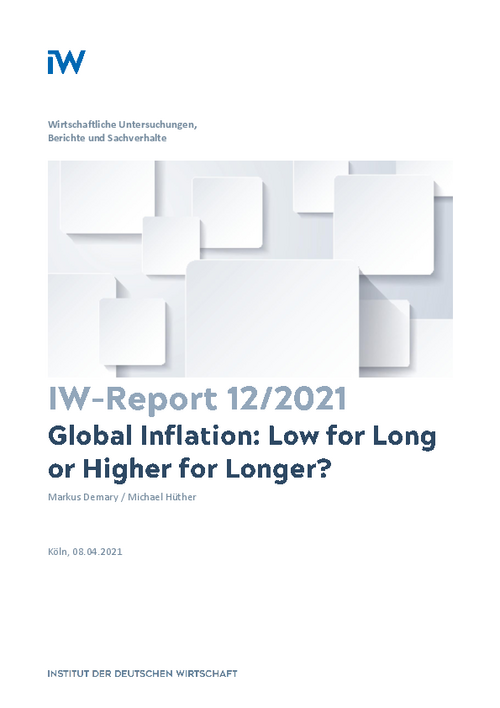Inflation has started to increase, and the return of inflation comes at a time in which economies begin to recover from pandemic-induced and lockdown-induced recessions. This raises questions about how much and how long inflation will go up as well as about whether central banks have to step-up against inflation at the cost of slowing down the economic recovery. Has “low for long” turned into “higher for longer”?

Global Inflation: Low for Long or Higher for Longer?

Inflation has started to increase, and the return of inflation comes at a time in which economies begin to recover from pandemic-induced and lockdown-induced recessions. This raises questions about how much and how long inflation will go up as well as about whether central banks have to step-up against inflation at the cost of slowing down the economic recovery. Has “low for long” turned into “higher for longer”?
We look at the different possible factors that could drive inflation, like pandemic- and lockdown-induced pend-up demand, price-wage-spirals, fiscal policy and other relevant factors. We conclude from our analysis that inflation could possibly rise in the short-term, but that inflation will return to low rates in the medium-term. While pend-up demand will result in higher prices, the inflation effect will only be transitory and moreover concentrated on services related to tourism and accommodation and be absent in other sectors where digital alternatives leading to more competition are available.
Even in the case in which the combination of accommodative monetary policy and expansionary fiscal policy would close the output gap and drive the economy towards a state of overheating, we expect a low inflationary effect because of the flat Phillips-curve.
Thus, we do not expect any trade-offs for central banks between fighting inflation and supporting the economies to grow and to deleverage. Instead, we see a welcomed return of inflation towards its target value accompanied by an economic recovery that enables central banks to end their asset purchasing programmes and their negative interest rate policies in a natural way, that means we expect higher interest rates without risks to the economic recovery.

Global Inflation: Low for Long or Higher for Longer?

More on the topic

German Wage Policy between Inflation and Stagnation: Are Conflicts with the Aims of Monetary Policy Looming?
After the economic and financial crisis of 2008/9, the German labour market soon began to recover, creating scope for a comparatively expansive wage policy.
IW
A Macroeconomic Analysis of Wage-Price Spirals
The subject of this Analysis is the forms that wage-price spirals can take and how they influence macroeconomic stability and inflationary trends in Germany.
IW